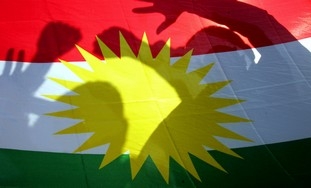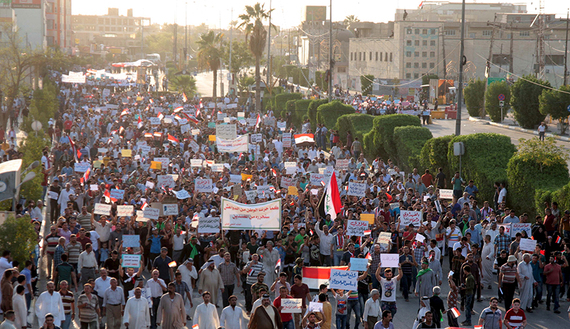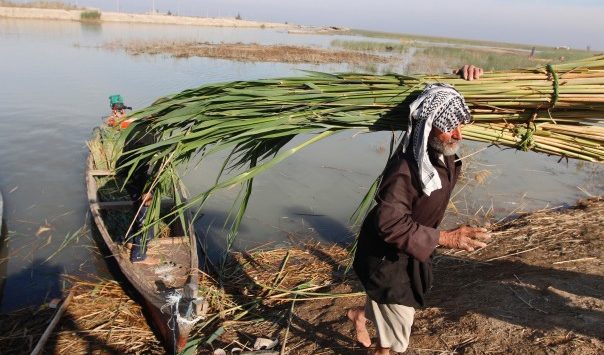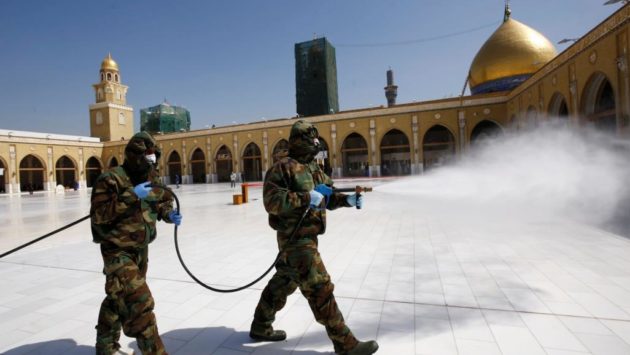Firing Up Kurdish Nationalism in Iraq
Yerevan Saeed – Washington Institute
Last month, the governor of Kirkuk, Najmaldin Karim, raised the Kurdistan flag in the province, causing uproar inside Iraq and across the region. The Iraqi parliament denounced the unilateral decision, dismissing it as unconstitutional. The Kirkuk province itself was quick to condemn the action as well and asked for its removal, with protests from the Arab and Turkmen populations. Meanwhile, the Turkish government summoned Turkmen leaders from Iraq for consultation and Iran criticized the governor’s action, saying it would lead to increased tensions in Iraq. Ankara and Tehran then both reaffirmed their long-standing policy of a unified Iraq; some have argued, though, that Turkey might support an independent Kurdistan in northern Iraq.
In Kurdistan, despite deep internal political divisions, hoisting the Kurdish flag received united support from all the parties as well as from the Kurdistan Regional Government (KRG). Kurds consider Kirkuk to be a part of their historical land. While legally in limbo, in practice Kirkuk has been under Kurdish control since 2003: every governor has been Kurdish, and the Kurds are the ones who run the government and provide security and defense against insurgent groups. The blessing of Kirkuk for the Kurds has not been its oil as much as its force as the most effective symbol of unity and nationalism. Kirkuk has dictated coordination among Kurdish forces, which are otherwise fragmented over partisan lines.
Kurds demand justice for generations of displacement and Arabization. After the fall of Saddam Hussein in 2003, the Kurds and Baghdad agreed to resolve the issue of Kirkuk. In December 2007, per a special article in the constitution, there was supposed to have been a referendum so that the population of the province would decide if they want to join the Kurdistan Region or remain as a part of the federal Iraqi state. However, Baghdad dragged its feet on logistics and failed to allocate an appropriate budget that would allow for a referendum to take place.
The two main Kurdish political parties are the Kurdistan Democratic Party (KDP) and the Patriotic Union of Kurdistan (PUK), of which Kirkuk’s flag-raising governor is a member. Recently, both parties have started internal shuttle diplomacy to push for a referendum on the independence of the Kurdistan Region of Iraq. The KDP/PUK impulse for referendum comes amid growing social dissatisfaction. If history is any indication, invoking the referendum is a political maneuver aimed at pushing back against the declining popularity of those in charge and side-stepping dire economic and political problems by stirring up Kurdish nationalism to win enough votes that will ensure the survival of the oligarchy in the next election, while simultaneously strengthening their leverage against Baghdad for the Iraqi parliamentary election in 2018.
Among the many problems the Kurdistan region suffers from, the most palpable is the legitimacy of its institutions and elected officials. The president of Kurdistan, Masoud Barzani, has refused to step down even though his two-term tenure ended in 2013 and the two year parliamentary extension he was granted expired in August 2015. Widespread corruption, high unemployment, frustration, and disappointment have added to further delegitimization of the Kurdish leadership. Political disagreement among the KDP and Movement for Change (Gorran), a self-proclaimed reform party, in Parliament has resulted in little oversight of the government.
The KRG is expected to hold an election on November 11, 2017. Given the political stalemate and dire economic situation, it seems that the KDP and PUK are attempting to win votes by drumming up nationalism and entertaining the referendum among ordinary Kurdish voters. Notably, PUK and KDP strategy will likely undermine Gorran in the next election, as these two parties have portrayed themselves as champions of an independent Kurdish state while Gorran has remained outside of the process.
Another indication of skepticism about the underlying motive for the referendum is that it is a KDP/PUK-led effort rather than a KRG-led one. Old, political elites of the KDP and PUK have rebranded themselves as saviors of Kurds and have visited other parties and met with diplomats in Erbil to discuss the referendum and potential independence. The KDP and PUK delegations claimed that they had recently raised the referendum with Prime Minister Haider al-Abadi in Baghdad. However, a Kurdish journalist said only the flag in Kirkuk had been discussed and that Abadi expressed tacit approval.
If true, Abadi’s alleged approval of the Kurdistan flag could be mutually beneficial for him and the Kurds. The KRG can further consolidate their grip on Kirkuk and potentially regain declining power in Baghdad. In return, the Kurds can lend political support to Abadi after the 2018 parliamentary elections in Iraq, especially if it means preventing former prime minister Maliki from returning to power. In the meantime, Kurds and Baghdad can avoid military confrontation over disputed territories. As result, the deal could be a win-win for both sides.
If successful in holding a referendum, the KDP and PUK will likely be able to do well in the next Kurdish elections. But they sacrifice the long term strategic goal of independence for short term tactical political gains, especially if the referendum process goes ahead in its current form. If they are serious about the referendum, there is a better, more credible way of doing it: let the KRG lead the process, design a roadmap with a strategic vision of the Kurdish state as the main objective. Kurdish parties can support from behind. Referendum and independence, at minimum, requires a level of transparency and consensus, and both these elements are lacking in the Kurdish case. Without these two prerogatives, even if the process succeeds, its implicit consequences will be dire for the Kurdish society and will be a setback to democracy in the region.





